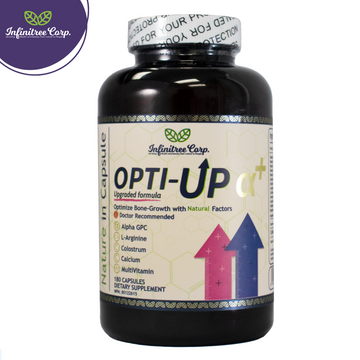
The Impact of Stress on Child Growth: Strategies for Healthy Development
Infinitree Editor
The Impact of Stress on Child Growth: Strategies for Healthy Development
Have you ever noticed that children seem to grow in spurts, often after a relaxing vacation or during a calm period at home? This isn't just imagination. Stress, that invisible yet powerful force, can significantly impact a child's growth and development.
The Stress-Growth Connection
When we think of factors affecting children's growth, nutrition and exercise often come to mind first. However, stress plays a crucial, often overlooked role. Chronic stress can interfere with the body's growth processes in several ways:
- Cortisol Release: Stress triggers the release of cortisol, often called the "stress hormone." While cortisol is necessary for some bodily functions, excessive amounts can suppress growth hormone production [1].
- Sleep Disruption: Stress often leads to sleep problems, and quality sleep is crucial for growth hormone release and overall development [2].
- Appetite Changes: Stress can affect appetite, potentially leading to poor nutrition, which is essential for proper growth.
- Immune System Impact: Chronic stress can weaken the immune system, diverting energy away from growth and development [3].

Recognizing Stress in Children
Children may not always verbalize their stress. Look out for signs such as:
- Changes in sleep patterns
- Mood swings or increased irritability
- Physical complaints like headaches or stomachaches
- Difficulty concentrating
- Changes in appetite
Strategies for Stress Management and Healthy Growth
- Create a Stable Routine: Predictability can help children feel secure and reduce stress.
- Encourage Physical Activity: Regular exercise is a great stress-buster and promotes healthy growth.
- Ensure Adequate Sleep: Establish a consistent bedtime routine to support quality sleep.
- Promote Healthy Eating: A balanced diet rich in nutrients supports both stress management and growth.
- Foster Open Communication: Create an environment where your child feels comfortable sharing their feelings.
- Teach Relaxation Techniques: Simple breathing exercises or mindfulness practices can be powerful tools for managing stress.
Supporting Growth in Stressful Times
While managing stress is crucial, sometimes children need extra support to ensure their growth stays on track. This is where carefully formulated supplements like Opti-Up Alpha Plus can play a supportive role.

Opti-Up Alpha Plus contains key ingredients that may help mitigate the effects of stress on growth:
- L-Glutamine: Known for its role in stress recovery, glutamine can support the body during stressful periods [4].
- Colostrum: Rich in growth factors and immune-boosting components, colostrum may help support the body's resilience to stress [5].
- Vitamin B Complex: B vitamins play a crucial role in energy production and stress management.
- Calcium and Vitamin D: These nutrients support bone health, which can be affected by chronic stress.
- Alpha GPC (Alpha-glycerophosphocholine): This compound is particularly noteworthy for its potential benefits in stress management and cognitive function. Alpha GPC is a precursor to acetylcholine, a neurotransmitter that plays a vital role in cognitive processes and stress response [6]. Research suggests that Alpha GPC may help:
- Improve cognitive function and memory, which can be impaired by chronic stress
- Support the production of growth hormone, potentially counteracting some of the growth-inhibiting effects of stress
- Enhance mood and reduce symptoms of anxiety, potentially helping children cope better with stressors [7]
By including Alpha GPC, Opti-Up Alpha Plus offers a unique advantage in supporting both cognitive function and stress management, which can indirectly support healthy growth in children facing stress.
Remember, while supplements can be beneficial, they should complement, not replace, a healthy lifestyle and stress management strategies. Always consult with a healthcare professional before starting any new supplement regimen for a child.
[References]
- Chrousos, G. P. (2009). Nature Reviews Endocrinology.
- Bonnet, M. H., & Arand, D. L. (2010). Sleep Medicine Reviews.
- Segerstrom, S. C., & Miller, G. E. (2004). Psychological Bulletin.
- Gleeson, M. (2008). Journal of Nutrition.
- Playford, R. J., et al. (2000). Gut.
- 6. Parker, A. G., et al. (2015). Journal of the International Society of Sports Nutrition.
- 7. Tamura, Y., et al. (2013). Nutrition Research.




